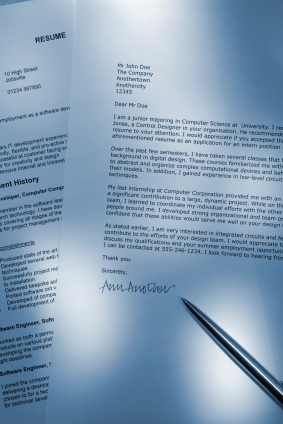
**I am a member of the Career Collective, a group of resume writers and career coaches. Each month, all members discuss a certain topic. This month, we are talking about “scary” career or resume mistakes. Please follow our tweets on Twitter #careercollective. You can also view the other member’s interesting posts at the end of the article.
+++
Executive or senior level positions are a different animal when compared to others. More than a simple experience, those applying for senior or executive positions have to be better, faster and more creative than the competition. Even the smallest of errors can quickly become roadblocks to future success. Understanding how to avoid scary resume mistakes is critical for those that hope to land a plum position.
Luckily, the scariest of these mistakes are also the easiest to avoid…if you simply know what you are looking for.
- Grammar: Sounds simple, but grammar and spelling errors can be the worst resume mistake. Poorly written resumes do not advertise the applicant as a qualified individual; instead, they advertise you as lazy, unobservant and possibly illiterate. This mistake is the easiest of all to avoid. Do not rely on spell check alone; instead ask a qualified friend or professional to review the resume for you as well.
- Poorly written objectives/career summaries: The career summary portion of a resume is often easy to overlook. Job seekers erroneously assume that those reading the resumes often ignore the section. Instead, the summary is your first and best chance to not only state your objective, but to add a sense of whom you are. Avoiding a poorly written career summary starts with putting in the appropriate amount of time writing it. Remain clear and focused on what you want to do, what you excel at, and what you can do for the reader. It is also a good idea to personalize summaries for specific jobs or positions.
- Hiding crucial information: Functional resumes sometimes seem like they are hiding information about the job seeker’s accomplishments and skill sets by ignoring the standard chronological format. If functional is still your choice, consider creating a hybrid functional/chronological resume that will please all types of readers.
- Being too general: Creating a generalized resume to use for every new opportunity is a mistake. Today, a general resume isn’t enough. Instead, develop a well written, grammatically correct base resume and personalize it for each new position. Carefully tweaking skills, highlighting different accomplishments and other critical areas more maximum impact is the best way to optimize your exposure to specific potential employers.
- Honest and Accuracy: “Everyone embellishes their resumes a little bit – right?” While that may be true for some people, inaccurate statements or outright wrong information is a mistake and not smart to do. Today’s employers are choosing from a pool of potential employees that is bigger than ever. Be sure that the information contained in your resume is accurate. Be honest and forthright in your answers. Honesty does matter. Don’t be one of the fools who use embellishment to make their resume stand out—and then get caught later.
Creating resumes that make an impact doesn’t have to be difficult. Spending adequate time, making use of a proofreader, being honest and carefully choosing your format and the information you present is the best way to avoid scary resume or career mistakes.
++++++++++
Read below for more resume and career advice from the Career Collective!
Where Are the Wild Things, Anyway?, @WorkWithIllness
Is Your Job Search Making You Feel Like a Smashed Pumpkin?, @DebraWheatman
Hiding in Plain Sight, @WalterAkana,
Don’t make these frightful resume mistakes, @LaurieBerenson
How Not to Be a Spooky Job Seeker, @heathermundell
A Tombstone Resume:Eulogizing Your Experience, @GayleHoward
The Top Ten Scary Things Job Seekers Do, @barbarasafani
Oh, Job Search Isn’t Like Trick or Treating?, @careersherpa
A Most Unfortunate Resume Mistake No One Will Tell You, @chandlee
Oh no. Not the phone!, @DawnBugni
Halloween Caution: Job Seeker Horror, @resumeservice
Boo! Are you scaring away opportunities or the competition? @MartinBuckland @EliteResumes
Your Career Brand: A Scary Trick or an Appealing Treat?, @KCCareerCoach
How to avoid mistakes on your resume, @Keppie_Careers
Sc-sc-scary Resume Mistakes, @erinkennedycprw
A Flawed Resume is a Scary Prospect, @KatCareerGal
Job Search Angst: Like Clouds Mounting Before a Storm, @ValueIntoWords
Does Your Career Costume Fit You?, @expatcoachmegan







